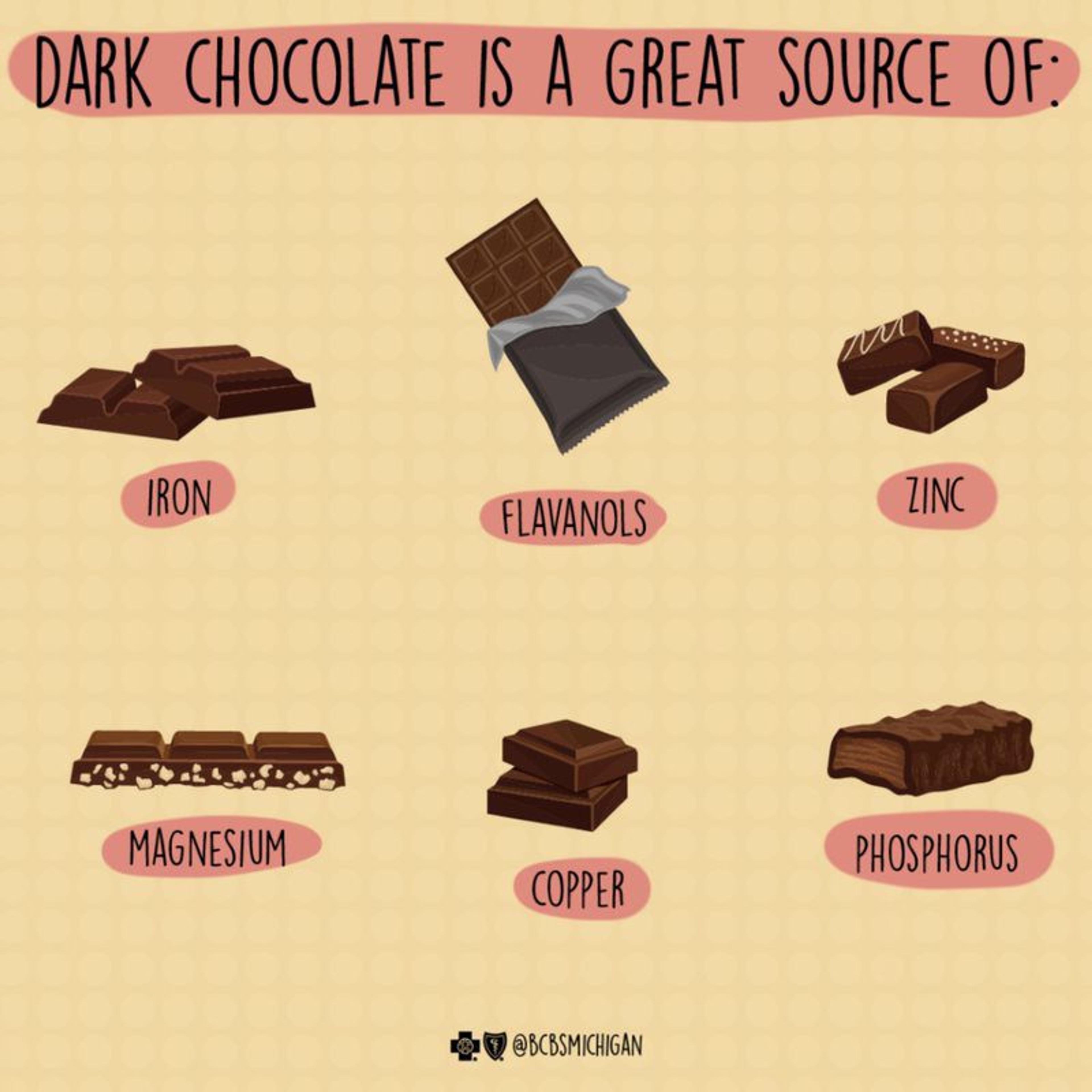Benefits of Dark Chocolate
Shandra Martinez
| 3 min read

For all the chocolate-lovers out there, this might be just the inspiration you need to start enjoying more of those dark pieces of deliciousness – all in the name of staying healthy, of course. While polls show most Americans prefer milk chocolate when they’re reaching for something to satisfy their sweet tooth, it’s dark chocolate that’s superior when it comes to health benefits. Let’s look at why dark chocolate is so satisfying to eat, and so good for you.

Where dark chocolate comes from. Dark chocolate has a long history, and its initial uses were not close to how it’s mostly eaten today. Its roots as a food can be traced back centuries to the Mayans of Central America, according to the Harvard School of Public Health. Back then, it was combined with spices or its raw form blended into wine for a bitter drink. These days, good dark chocolate is typically served up as hand-crafted truffles and other candies, or molded into bars or other treats.
The dark chocolate we know is actually the end of a multi-step process that starts with extracting the inside seeds, or beans, of cacao pods. The cocoa beans are ground into what becomes cocoa powder, while the interior cocoa nibs are liquified and used to make dark chocolate.
Why dark chocolate is different from milk chocolate. When you are comparing dark chocolate and milk chocolate, there is a big difference in the ratio of ingredients – and that’s where the difference is in the health benefits, too. What to know:
- Dark chocolate contains at least 50% and up to 90% cocoa solids, cocoa butter and sugar.
- Milk chocolate contains 10% to 50% of these ingredients, plus milk.
- Low-quality chocolate can also contain extra ingredients like vegetable oils and butter fats.
It’s that high percentage of cocoa solids that can offer such a big health benefit. Compared to its paler cousin, dark chocolate contains up to three times more flavanols. These are plant chemicals found in cocoa that can help protect the heart.
Health benefits of dark chocolate. Want more details to feel good about – or to convince you to drop your milk chocolate habit and shift over to the dark side? Here are some of the health benefits of dark chocolate, as gathered by Harvard and WebMD:
- Flavanols help relax blood vessels and improve blood flow
- Lower blood pressure
- Decrease risk of diabetes
- Improve vision
- Good source of fiber
- Good source of iron, magnesium, zinc and copper
A recent study from Consumer Reports found high levels of lead and cadmium in many commercial brands of dark chocolate, so it’s important to choose your chocolate sources wisely. Local chocolatiers who use responsibly-sourced or even organic chocolate products are often the best choices.
Easy ways to enjoy dark chocolate. Aim for at least an ounce of dark chocolate a day to reap the health benefits. And there are so many ways to enjoy this decadent treat. You can eat it right out of hand, or melt it into milk for hot chocolate. The important thing: make time to stop and savor the taste. It’s not as sweet as milk chocolate, but it can be so much more flavorful. Some ways to enjoy it:
- Broken into bite-sized pieces and served with whole nuts and sliced fruit as a snack
- Enjoyed as a one-ounce square as a melt-in-your-mouth dessert
- It pairs well with most red wines
- Grated over a dish of Greek yogurt
- As hand-made truffles and other candies made by your favorite chocolatier
Related:
Photo credit: Getty Images





